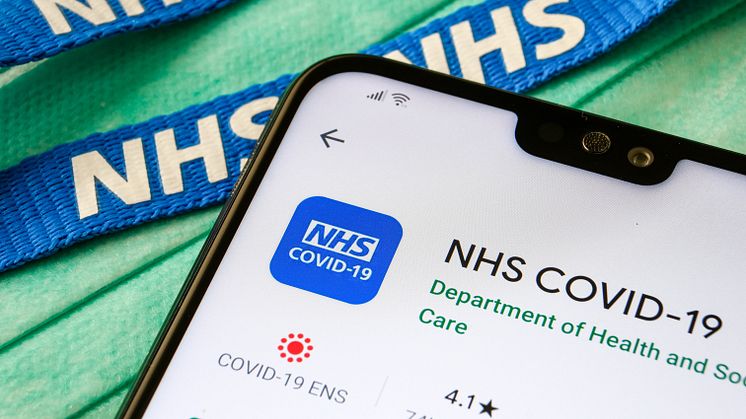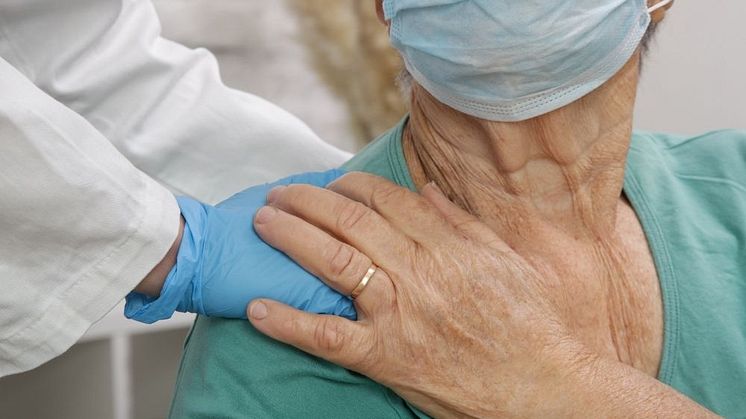
Press release -
Lessons learned in the data-driven response to the Covid-19 pandemic
Researchers from the Observatory for Monitoring Data-Driven Approaches to Covid-19 (OMDDAC) have published three Snapshot Reports following a study part-led by academics at Northumbria University which seeks to capture lessons learned from the experiences of key stakeholders involved in data-driven responses to the Covid-19 pandemic.
OMDDAC is funded the Arts and Humanities Research Council (AHRC) as part of UK Research and Innovation (UKRI’s) rapid response to COVID-19. Led by Dr Marion Oswald from Northumbria Law School in partnership with the Royal United Services Institute (RUSI), the research has focused upon legal, ethical, policy and operational challenges of using technology and data-driven solutions to the pandemic. Researchers looked at three key areas: (1) data-driven public policy, (2) technology-driven approaches to public health, such as the NHS Covid-19 contact tracing app; the QCovid algorithm; and digital Covid-status certifications and (3) policing and public safety.
In sharing their experiences during interviews with OMDDAC researchers, some stakeholders identified an over-risk averse attitude to public sector data sharing, which may have hindered the public health benefits of the NHS Covid-19 contact tracing app. Sneha Dawda, RUSI research fellow and lead author of the health report, commented: “Our research suggests there should be a longer-term evaluation of the consequences of a decentralised approach on public health aims, and the safeguards and governance frameworks that would be needed to generate trust in a centralised model in the future.”
OMDDAC researchers also made a number of recommendations applicable across the three areas. These include a need for greater transparency in publishing data, and a clearer rationale behind decisions made based on this data. The quality of the data and how it is used between different systems have presented challenges, particularly when national and local responses crossover. OMDDAC’s researchers also found that extensive monitoring and evaluation of data-driven tools are fundamental to their success across all areas of the research focus.
Rachel Allsopp, Research Fellow from Northumbria Law School and lead author of the public policy report, explained: “Data-driven solutions have been central across the spectrum of pandemic responses in the UK. For example, combining digital health datasets within a single dashboard, use of communications data to map trends, monitoring of quarantine behaviour by drones and automated number plate recognition, and access to Bluetooth data for contact tracing.
“The technology involved has also been developed at speed. While this is understandable, adopting technology without appropriate consideration of the contextual background and resulting interventions brings with it a high risk of errors, limited efficacy and unintended consequences for individuals. These risks are particularly pronounced for already disadvantaged sections of the population with low levels of trust in government.”
Ardi Janjeva, research analyst at RUSI and the lead author of the policing snapshot report, added: “The pandemic has resulted in new ways of monitoring crime and enforcement trends giving indications of where and when disproportionate levels of policing may be occurring. These initiatives have much potential for the future and policing bodies should look to develop such best practice nationally.”
Dr Marion Oswald, OMDDAC’s principal investigator, said ‘OMDDAC is an integrated interdisciplinary collaboration, and these reports reflect contributions from all of our researchers. Methods of remote interviewing and engagement have no doubt expanded the range of individuals and organisations that the project has been able to reach. We are very grateful to all our interviewees for contributing their time to the project.’
OMDDAC is a collaboration between Northumbria and RUSI, including researchers with technology law, data protection law, medical law, practical ethics, computer science, data science, applied statistics in health, technology studies and behavioural science expertise. Project partners and advisers include the Ada Lovelace Institute, CDEI, medConfidential and Lord Jonathan Evans of Weardale.
ends
Notes to editors:
About UK Research and Innovation
UK Research and Innovation (UKRI) is the largest public funder of research and innovation in the UK, with a budget of over £8bn. It is composed of seven disciplinary research councils, Innovate UK and Research England.
We operate across the whole country and work with our many partners in higher education, research organisations businesses, government, and charities.
Our vision is for an outstanding research and innovation system in the UK that gives everyone the opportunity to contribute and to benefit, enriching lives locally, nationally and internationally.
Our mission is to convene, catalyse and invest in close collaboration with others to build a thriving, inclusive research and innovation system that connects discovery to prosperity and public good.
About the Arts and Humanities Research Council
The Arts and Humanities Research Council (AHRC), part of UK Research and Innovation, funds internationally outstanding independent researchers across the whole range of the arts and humanities: history, archaeology, digital content, philosophy, languages and literature, design, heritage, area studies, the creative and performing arts, and much more.
The quality and range of research supported by AHRC works for the good of UK society and culture and contributes both to UK economic success and to the culture and welfare of societies across the globe.
You can find out more information via ahrc.ukri.org or following us on Twitter at @ahrcpress or Facebook at @artsandhumanitiesresearchcouncil.
Topics
Categories
Northumbria is a research-rich, business-focused, professional university with a global reputation for academic excellence. Find out more about us at www.northumbria.ac.uk --- Please contact our Media and Communications team at media.communications@northumbria.ac.uk with any media enquiries or interview requests ---












